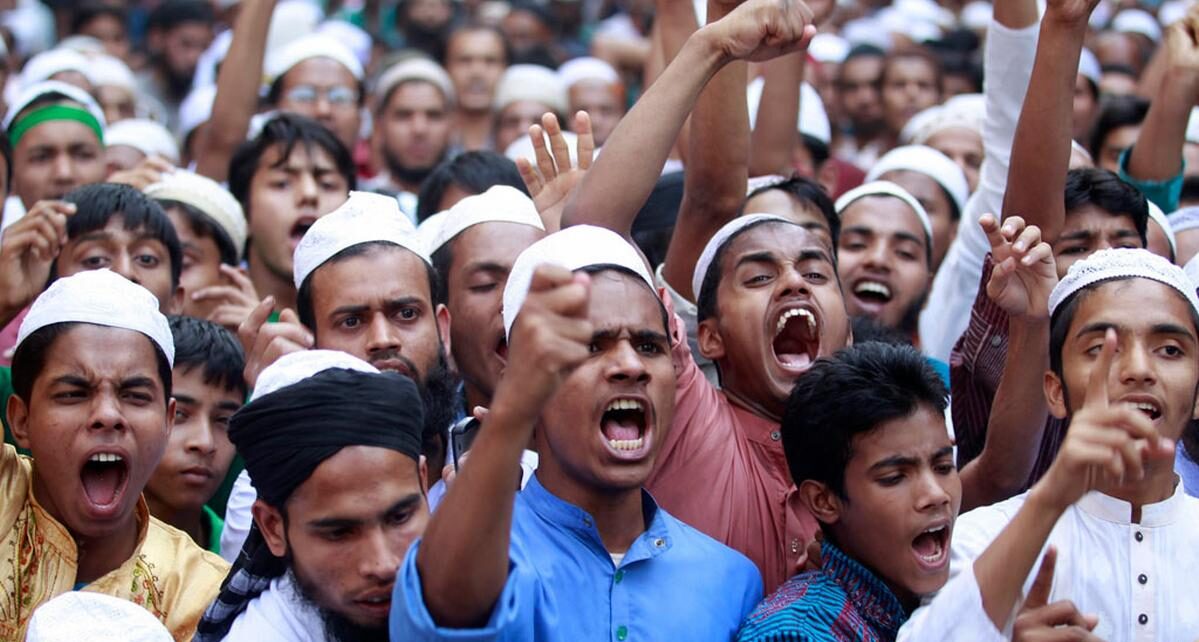Azmain Sharier Ornob, United Kingdom
Introduction
Bangladesh, a nation known for its rich cultural heritage and moderate Islamic traditions, has faced increasing challenges from Islamic extremism in recent decades. While the majority of Bangladeshis practice a tolerant form of Islam, the rise of extremist groups has posed significant threats to the country’s social fabric, security, and democratic values. This blog explores the roots, manifestations, and responses to Islamic extremism in Bangladesh, shedding light on a complex issue that demands nuanced understanding.
Historical Context
Islamic extremism in Bangladesh has its roots in a combination of historical, political, and socio-economic factors. The country’s independence in 1971 was marked by a commitment to secularism, as enshrined in the constitution. However, political shifts in the 1980s under military regimes saw the gradual Islamization of politics, with Islam declared the state religion in 1988. This opened the door for religious-based political movements to gain traction.
Global events, such as the Soviet-Afghan War (1979–1989), also played a role. Bangladeshi fighters who joined the Afghan jihad returned home radicalized, bringing with them ideologies that clashed with the country’s traditionally moderate Sufi-influenced Islam. The growth of madrasas, some funded by foreign entities from the Middle East, further spread Wahhabi and Salafist ideologies, which fueled extremist narratives.
Rise of Extremist Groups
Several extremist groups have emerged in Bangladesh over the years, with notable ones including:
- Jamaat-ul-Mujahideen Bangladesh (JMB): Formed in the late 1990s, JMB gained notoriety for its 2005 coordinated bomb attacks across 63 districts, targeting government institutions and secular intellectuals. The group seeks to impose a strict interpretation of Sharia law and has been linked to global terrorist networks like Al-Qaeda.
- Ansarullah Bangla Team (ABT): A newer group inspired by Al-Qaeda, ABT has targeted secular bloggers, writers, and activists, particularly between 2013 and 2016. Their attacks, often carried out with machetes, aimed to silence voices advocating for secularism and free speech.
- Islamic State (ISIS) and Al-Qaeda Affiliates: Both global jihadist networks have claimed responsibility for attacks in Bangladesh, including the 2016 Holey Artisan Bakery attack in Dhaka, which killed 22 people, mostly foreigners. These groups exploit local grievances to recruit and radicalize youth.
Socio-Economic Drivers
Islamic extremism in Bangladesh is not solely a religious issue; it is deeply tied to socio-economic challenges. Key drivers include:
- Poverty and Unemployment: Bangladesh’s rapid economic growth has not been evenly distributed, leaving many young people in rural and urban slums vulnerable to radicalization. Extremist groups offer a sense of purpose and belonging to disenfranchised youth.
- Education Disparities: Unregulated madrasas, which sometimes serve as breeding grounds for extremist ideologies, attract students from impoverished families who cannot afford mainstream education.
- Political Instability: Political polarization and weak governance have created spaces for extremist groups to operate, often exploiting public discontent with corruption and inequality.
Impact on Society
The rise of Islamic extremism has had profound effects on Bangladeshi society:
- Attacks on Secularism: Secular intellectuals, bloggers, and religious minorities (Hindus, Christians, and Ahmadi Muslims) have been targeted, creating a climate of fear. The murders of bloggers like Avijit Roy in 2015 highlighted the risks faced by those advocating for free thought.
- Erosion of Pluralism: Bangladesh’s syncretic culture, which blends Islamic, Hindu, and indigenous traditions, is under threat as extremists push for a monolithic religious identity.
- Security Challenges: High-profile attacks, such as the Holey Artisan Bakery incident, have strained Bangladesh’s security apparatus and damaged its international reputation as a stable, moderate nation.
Government and International Responses
The Bangladeshi government has taken significant steps to counter extremism, including:
- Security Crackdowns: Following major attacks, law enforcement agencies have conducted nationwide operations to dismantle extremist networks, arresting hundreds of suspected militants.
- Legislative Measures: Laws like the Anti-Terrorism Act of 2009 have been enacted to curb terrorist activities, though concerns remain about their misuse against political opponents.
- Counter-Radicalization Programs: Efforts to regulate madrasas, promote moderate Islamic teachings, and engage communities in counter-extremism initiatives are ongoing but face challenges due to limited resources.
Internationally, Bangladesh has collaborated with countries like India, the United States, and regional organizations to share intelligence and combat cross-border terrorism. However, foreign funding for extremist groups remains a persistent issue, requiring greater global cooperation.
Challenges and the Way Forward
Addressing Islamic extremism in Bangladesh requires a multi-pronged approach:
- Economic Inclusion: Tackling poverty and unemployment through equitable development can reduce the appeal of extremist ideologies.
- Education Reform: Modernizing madrasa curricula and expanding access to quality education can counter radical narratives.
- Strengthening Governance: Transparent and accountable governance can rebuild public trust and reduce the space for extremist groups to exploit grievances.
- Promoting Moderate Voices: Amplifying moderate Islamic scholars and community leaders can help reclaim the narrative from extremists.
Conclusion
Islamic extremism in Bangladesh is a complex challenge rooted in historical, socio-economic, and global factors. While the country has made strides in combating this threat, sustained efforts are needed to address its underlying causes. By fostering inclusive development, strengthening democratic institutions, and promoting a pluralistic vision of Islam, Bangladesh can preserve its moderate identity and build a resilient society capable of withstanding the pressures of extremism. The path forward lies in balancing security measures with long-term strategies that address the root causes of radicalization.

